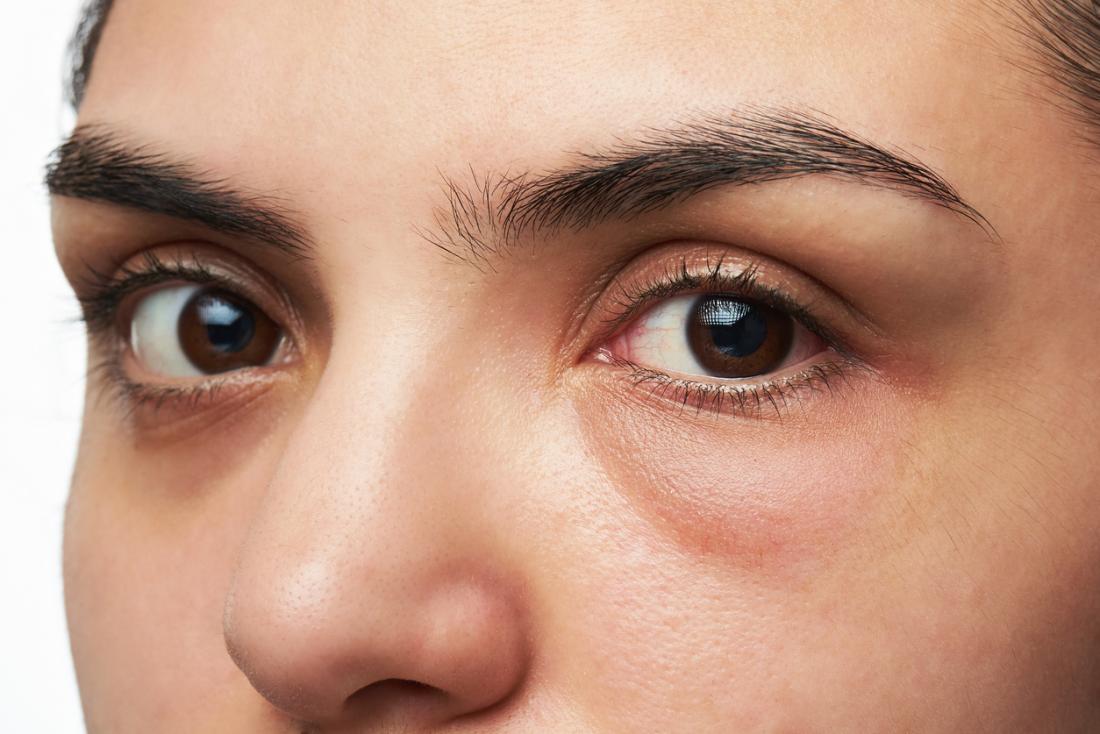A look at “Facial Swelling: 15 Causes And Treatments For a Puffy Face” Facial swelling, also known as facial edema, is a common condition that affects many individuals.
It refers to the abnormal accumulation of fluid in the tissues of the face, leading to a swollen or puffy appearance. Facial swelling can be caused by various factors, ranging from minor allergies to serious medical conditions.

In this article, we will explore 15 common causes of facial swelling and discuss appropriate treatments for each.
Understanding Facial Swelling
Facial swelling occurs when there is an abnormal buildup of fluid in the tissues of the face. It can affect any part of the face, including the eyes, cheeks, lips, or entire face. The swelling may be accompanied by redness, pain, and discomfort. Understanding the underlying causes is crucial for effective treatment.
Allergic Reactions and Facial Swelling
One common cause of facial swelling is an allergic reaction. When the body’s immune system overreacts to certain substances, such as pollen, pet dander, or certain foods, it can lead to facial swelling. This condition is known as angioedema. Antihistamines and corticosteroids are often used to treat allergic reactions and reduce facial swelling.
Sinus Infections and Facial Swelling
Sinus infections can cause facial swelling due to inflammation and fluid buildup in the sinuses. The swelling is often concentrated around the eyes, cheeks, and forehead. Treatment for sinus infections may involve antibiotics, decongestants, and nasal irrigation to reduce the swelling and relieve symptoms.
Dental Issues and Facial Swelling
Dental problems like tooth infections or abscesses can result in facial swelling. The infection can spread to the surrounding tissues, leading to inflammation and swelling in the face. Dental treatment, such as root canal therapy or tooth extraction, is often necessary to address the underlying cause and alleviate the swelling.
Trauma and Facial Swelling
Facial trauma, such as a blow to the face or a fracture, can cause immediate facial swelling. The body’s natural response to injury is to increase blood flow to the affected area, leading to swelling. Applying cold compresses and seeking medical attention are essential for managing swelling caused by facial trauma.
Insect Bites and Facial Swelling
Insect bites or stings, such as those from bees, wasps, or spiders, can result in localized facial swelling. This swelling is often accompanied by itching, redness, and pain. Over-the-counter antihistamines and topical creams can provide relief from the swelling and other symptoms associated with insect bites.
Medications and Facial Swelling
Certain medications, such as nonsteroidal anti-inflammatory drugs (NSAIDs), blood pressure medications, and antibiotics, can cause facial swelling as a side effect. If you experience facial swelling after starting a new medication, it is essential to consult your healthcare provider. They may adjust your dosage or prescribe an alternative medication to alleviate the swelling.
Angioedema and Facial Swelling
Angioedema is a condition characterized by sudden and severe facial swelling that occurs beneath the skin’s surface. It can be caused by allergies, medications, or inherited genetic factors. Angioedema requires immediate medical attention, as it can be life-threatening in some cases. Treatment often involves antihistamines, corticosteroids, or epinephrine injections to reduce swelling and prevent further complications.
Hormonal Changes and Facial Swelling
Hormonal changes, particularly during menstruation, pregnancy, or menopause, can contribute to facial swelling in some individuals. Fluctuations in estrogen levels can lead to water retention and fluid buildup, resulting in a puffy face. Maintaining a balanced diet, staying hydrated, and managing stress levels can help alleviate hormonal-related facial swelling.
Kidney Problems and Facial Swelling
Kidney problems, such as kidney disease or kidney failure, can cause fluid retention in the body, including the face. When the kidneys are unable to effectively eliminate waste and excess fluid, swelling can occur in various parts of the body, including the face. Treating the underlying kidney condition and following a prescribed treatment plan, including medications and lifestyle changes, can help reduce facial swelling.
READ RELATED: Jacklyn Zeman Obituary: What’s The Cause Of Her Death?
Thyroid Disorders and Facial Swelling
Thyroid disorders, such as hypothyroidism or Graves’ disease, can disrupt the hormone balance in the body, leading to facial swelling. In hypothyroidism, facial swelling is often accompanied by weight gain, fatigue, and dry skin. Treating the thyroid disorder with medication and regular monitoring by a healthcare professional can help manage facial swelling associated with thyroid conditions.
Salivary Gland Infections and Facial Swelling
Salivary gland infections, such as parotitis or sialadenitis, can cause swelling in the face, specifically in the cheeks and jaw area. These infections occur when the salivary glands become blocked or infected, leading to inflammation and swelling. Treatment typically involves antibiotics, warm compresses, and maintaining good oral hygiene to alleviate the swelling and promote healing.
Autoimmune Diseases and Facial Swelling
Certain autoimmune diseases, like lupus or rheumatoid arthritis, can cause facial swelling as part of their symptomatology. These conditions involve an overactive immune response that can lead to inflammation in various parts of the body, including the face. Treatment for autoimmune diseases aims to manage the underlying condition through medication, lifestyle changes, and regular medical monitoring.
Alcohol and Facial Swelling
Excessive alcohol consumption can contribute to facial swelling, often referred to as “alcohol bloat.” Alcohol causes dehydration and dilates blood vessels, leading to fluid retention and facial puffiness. Limiting alcohol intake, staying hydrated, and adopting a healthy lifestyle can help reduce facial swelling associated with alcohol consumption.
Home Remedies and Treatments for Facial Swelling
While treating the underlying cause of facial swelling is crucial, there are also some home remedies and treatments that can provide relief. These include:
- Applying a cold compress or ice pack to the swollen area to reduce inflammation.
- Elevating the head while sleeping to prevent fluid buildup in the face.
- Drinking plenty of water to stay hydrated and promote healthy fluid balance in the body.
- Avoiding salty foods that can contribute to water retention and facial swelling.
- Trying over-the-counter antihistamines or allergy medications if the swelling is caused by allergies.
- Using topical creams or lotions containing ingredients like aloe vera or cucumber extract, known for their soothing properties.
- Practicing facial massage techniques, such as gentle upward strokes, to stimulate lymphatic drainage and reduce swelling.
- Trying natural diuretics like green tea, parsley, or dandelion root to help flush out excess fluids from the body.
It’s important to note that while these remedies may provide temporary relief, they are not substitutes for medical treatment. If facial swelling persists, worsens, or is accompanied by severe symptoms, it’s crucial to seek professional medical advice.
Conclusion
Facial swelling can be a distressing condition that affects individuals for various reasons. By understanding the underlying causes and appropriate treatments, individuals can effectively manage and alleviate facial swelling. Whether it’s due to allergies, infections, hormonal changes, or other factors, seeking medical guidance and following a prescribed treatment plan is essential. Additionally, incorporating home remedies and lifestyle changes can provide supplementary relief. Remember, each case of facial swelling is unique, and a healthcare professional’s guidance is crucial for accurate diagnosis and treatment.
FAQs (Frequently Asked Questions)
1. Can stress cause facial swelling?
Yes, prolonged stress or anxiety can contribute to facial swelling. Stress can trigger an inflammatory response in the body, leading to fluid retention and swelling in various areas, including the face.
2. When should I seek medical help for facial swelling?
You should seek medical help if facial swelling is severe, accompanied by difficulty breathing or swallowing, or if it is interfering with your daily activities. Additionally, if facial swelling is sudden, persistent, or accompanied by other concerning symptoms, it’s important to consult a healthcare professional.
3. Are there any preventive measures to reduce facial swelling?
While some causes of facial swelling may not be preventable, there are steps you can take to minimize the risk. These include maintaining a healthy lifestyle, managing allergies, practicing good oral hygiene, and following prescribed treatment plans for underlying conditions.
4. Can facial swelling be a sign of a medical emergency?
In some cases, facial swelling can be a sign of a severe allergic reaction called anaphylaxis, which is a medical emergency. If facial swelling is accompanied by difficulty breathing, hives, or dizziness, seek immediate medical attention or call emergency services.
5. How long does facial swelling typically last?
The duration of facial swelling depends on the underlying cause. In some cases, it may resolve on its own within a few hours or days. However, if facial swelling persists or worsens, it’s advisable to consult a healthcare professional for evaluation and appropriate treatment.
Continue to check our website for more articles of this kind. And, please use our comment section as well, we would love to hear from you.




